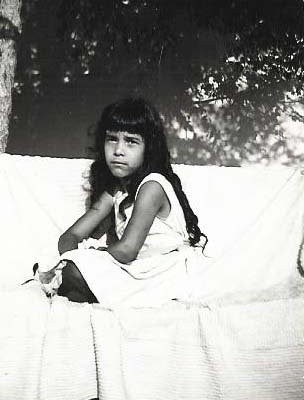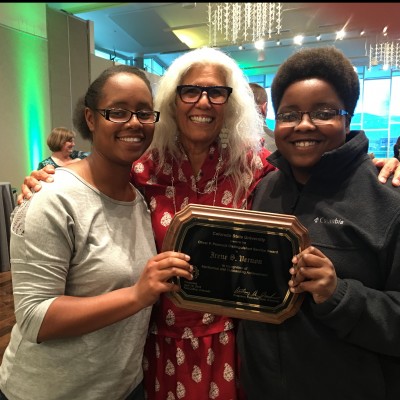Faculty at Colorado State University wear many hats. They are teachers, mentors, leaders, researchers, advocates and activists. And some of them are leading by example in another important role, by investing in the future of Colorado State University as donors. One of those people is Department of Ethnic Studies chair Irene Vernon, who has been supporting university programs as a donor for almost twenty years.
For Vernon, giving is about creating opportunity and access for marginalized or underrepresented students. As chair of a department she feels a responsibility to demonstrate a commitment to students in a meaningful way, and gives to programs across campus as well as nationwide.
“Donating is important, and it empowers our students in so many unmeasurable ways,” Vernon explains. “It is important that we take care of each other, which is part of what encourages me to give.”
A long history of philanthropy

Vernon was the last of six children born of Mescalero Apache, Yaqui, and Mexicana descent on a cotton farm in Little Rock, Arkansas. Her father was dark enough from picking cotton to be considered and treated as African American, and her mother held strict standards for their appearance and actions so they would not be judged negatively.
Vernon’s parents were unable to read or write, but they both put a great deal of emphasis on education and giving back to their community. Irene’s mother was passionate about philanthropy, even though they were poor.
“It wasn’t about money,” Vernon says. “My mom would donate time, donate food, and donate other things. So the idea of giving is just embedded in me.”
Supporting Students
As the leader of the ethnic studies department, Vernon feels a strong responsibility to give her resources — both time and money — to the students she serves.
“You have a vision for where you want your department to go,” she says. “You have to support that vision, and part of that is supporting the students you see every day. By showing that you really are passionate about your vision, and willing to put the financial backing in place to help your program meet the next level, you can foster a supportive atmosphere for faculty, staff, and students.”
Vernon also gives because she truly loves her students. She emphasizes that the students in ethnic studies are often marginalized and have a great need for scholarship support to complete their degree. Supporting scholarships helps students to have less financial stress, which Vernon argues is an important need.
“Students are leaving college with huge amounts of debt,” she says. “Donating is a way to show appreciation for them being here, to honor their journey, and to recognize their work as students.”
Ethnic Studies Graduate Scholarship
In particular, Vernon is focused on fully endowing the Ethnic Studies Graduate Scholarship. She is the primary donor to the scholarship and hopes to see it fully endowed by the time she retires at the end of 2016. An additional $2,000 in donations would fully fund the endowment and enable the department to begin awarding scholarships to deserving graduate students.
Vernon gives because she sees the need within the community, and notes that donations don’t have to be huge gifts.
“I have seen people give two, three, or five dollars,” she said. “It’s about giving what you can. It’s about doing it because it’s important to you.”
Recognition for years of service

As a recognition of her many years of service and leadership to Colorado State University, Vernon received the Oliver P. Pennock Distinguished Service Award at the Celebrate! CSU awards April 19th.
“Irene has long been a strong and committed voice supporting diverse students, faculty, and alumni and championing the cause of individuals who have been ignored or not fairly treated,” said College of Liberal Arts Dean Ann Gill.
“Her passion, fierce commitment, and tireless advocacy drove the formation of the Department of Ethnic Studies,” added CSU President Tony Frank. “Her leadership of the Standing Committee on the Status of Women Faculty has led to real and measurable progress in the climate for women and gender equity on our campus. Perhaps her greatest contribution has been her many years of extraordinary mentorship of students and faculty—she is a teacher to her core.”
To support the Ethnic Studies Graduate Student scholarship, visit the Department of Ethnic Studies giving page.
Dr. Ray Black contributed to this story.
